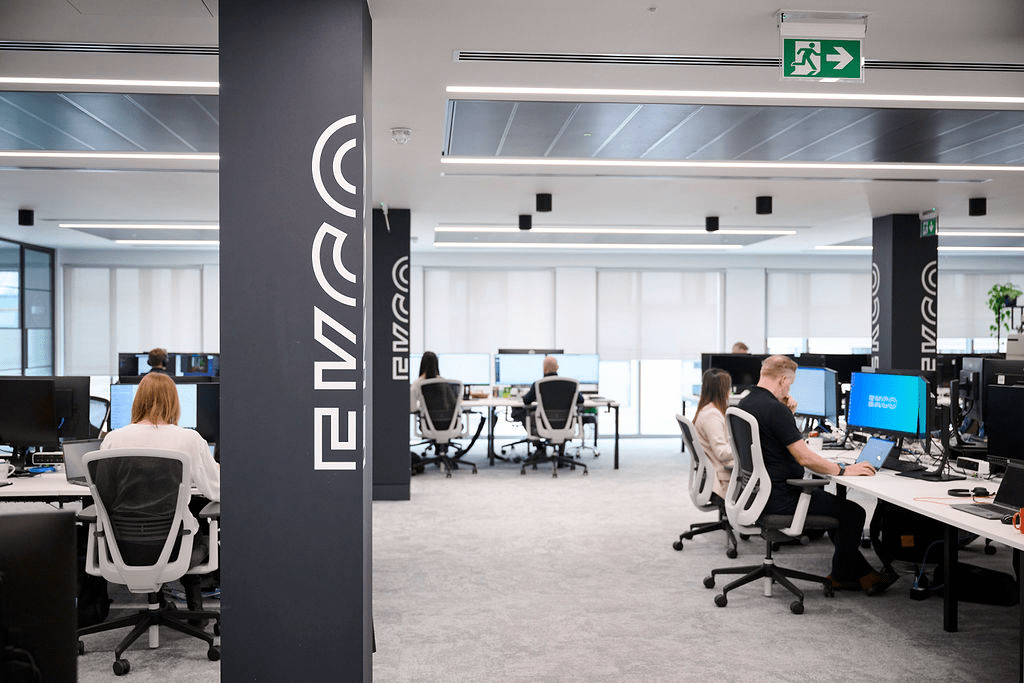A closer look at VDI for Finance
Increasingly, CIO's are turning to Desktop as A Service (DaaS) as a way to deliver greater efficiency, reduced IT spend and greater scalability. The financial services industry has been known to lag behind in adopting new technologies, however, many organisations are turning to virtual desktop infrastructure (VDI) as part of digital initiatives.

Increasingly, CIO’s are turning to Desktop as A Service (DaaS) as a way to deliver greater efficiency, reduced IT spend and greater scalability. The financial services industry has been known to lag behind in adopting new technologies, however, many organisations are turning to virtual desktop infrastructure (VDI) as part of digital initiatives.
The cautious approach to adoption in finance comes from the sensitive nature of the sector, however, cloud-like services offer the path of least resistance for organisations looking to deliver lasting change within the confines of their industry. In this blog, we take a look at the three major reasons companies in the financial sector are making the transition to VDI.
1) Enhanced data security
Put bluntly, compliance and security in the highly regulated financial sector make computing, in general, more difficult. For example, 81% of financial firms state that their company’s security rules restrict access to tools and applications outside of the office environment and normal working hours. Security policies, which are in place to reduce the risk of data exposure, come at the expense of flexibility and modernisation. While organisations the world round are benefiting from flexible working and global talent, staff in the finance industry can find themselves locked to physical office locations.
In the main, DaaS gives the IT team more control. Essentially a desktop session streamed from the data centre to the end device, DaaS can be used to address many of these security issues which arise from increases workplace flexibility. Think features such as single sign-on and policy-based access controls, which safeguard the integrity of company data which, in the finance industry, is usually highly sensitive and subject to regulatory scrutiny. It also removes the need for IT teams to open up the corporate network via VPN as users connect directly to the data centre, which is much more secure.
Because the data is removed from the end-users’ machine, a DaaS session can’t be lost or stolen like a laptop. If a device goes missing there is no risk of compromised data. However, it’s not just mobile staff DaaS keeps safe, it also provides greater security for office-based staff, for example, allowing USB drives to be locked down centrally without impacting the user.
Then there’s a standard desktop best-practice build image, which becomes compromised over time. Every alteration to the standard build exposes to the company to new threats. DaaS allows these images to be controlled and reset ensuring adherence to a financial company’s defined security policies.
Security is the main concern for IT teams in the finance space, and hosted desktops truly deliver on this front. In the past, these solutions have been implemented due to their security kudos alone but, as the solutions and the workplace have evolved, there are also a range of mobility and flexibility benefits on offer.
2) Improved workplace flexibility
DaaS is a key element for a modern, flexible workplace. The requirement for flexibility has been driven by the change in the workforce demographic, end-customer demands and external factors, such as the current global health crisis. Flexibility is not just about giving employees secure access to systems outside of the office, which is a great benefit but also relates to accessibility via a range of devices and the delivery of applications.
In the past, IT departments have controlled end-user hardware and operating systems to ensure they can properly support the devices on the network. These requirements are at odds with delivering a modern workplace, with user preference playing a more and more important role.
In the world of finance, companies have additional concerns when compared to a company with simple operations. Think security accountability, auditing and compliance. All of these things make non-DaaS Bring Your Own Device (BYOD) impractical for finance firms.
DaaS changes this as end-user hardware is suddenly irrelevant. The IT department retains control of the DaaS session, which leaves users to access their desktop from whatever device they choose as the application and data are not tied to the chosen endpoint.
Flexibility isn’t just an end-user benefit, either. Because DaaS is supplied on a per-user basis, a company can add or remove users quickly, responding dynamically to changes within the business.
With a large percentage of desk-based staff, the financial services industry makes a great candidate for homeworking. The ability to have your staff continuing to service customers from a location that most suits them – especially if there are restrictions on travel – provides finance companies with more than business continuity. It provides a way for organisations to safeguard productivity.
3) The evolution of desktop virtualisation
The concept of a virtual desktop is not a new one. Many financial companies have deployed such solutions in the past, creating tightly controlled environments, giving users access from thin clients.
These in-house VDI deployments are known to be expensive, and critically, they have been static. Once deployed, they remain largely unchanged because of the large upfront investment and engineering resource needed for the initial deployment. With out of date platforms running internally, finance companies become restricted in what technologies they can adopt. The user experience begins to degrade and productivity can begin to be affected, which presents a huge challenge.
While VDI has proven costly to implement and sometimes difficult to migrate away from, Desktop as a Service offers a much better approach for an organisation, delivering a fully managed platform from a service provider, whose responsibility it is to maintain the platform and its underlying infrastructure.
The platforms are available multi-tenanted or dedicated so can be deployed quickly for trialling or proof of concept purposes. A managed service is evergreen, with updates, management and ongoing service enhancements delivered as part of the standard service.
You need an assurance that, in three years time, your company will have a platform that’s up to the demands your organisation faces. You need to react quickly to market changes to remain competitive and Desktop as a Service ensures this is possible.
All sectors are going to face real challenges over the next year, and financial services will not be spared. Your company will be expected to deliver greater value with reduced resources. To deliver this, your IT team needs to focus on delivering value and innovation rather than managing BAU activities.
Adopting an ‘as a service’ model for desktops, where you only pay for what you use and don’t manage the infrastructure, means you can deliver what your workforce needs without getting bogged down in delivering the platform yourself. This provides an OPEX-based service which means you will keep hold of more of your budget, offering more flexible contracts than hardware purchases which provides a point of negotiation if services deteriorate.
At Cloudhelix, we can deliver DaaS in a number of ways to suit the unique challenges of the financial industry, a space we’ve been working in for over five years.
We can deliver DaaS with an on-premise solution (via our Converged Cloud Stack) to deal with data sovereignty and compliance requirements or it can be delivered as private or public cloud options if required. Our technology-agnostic approach means we can have open discussions about your challenges that result in the best solution for your organisation.
Interested in implementing DaaS with a difference? Our team are ready to talk you through the process of delivering a virtual desktop platform that will improve agility and productivity in uncertain times. Call us on 01273 987920 or email sales@cloudhelix.io today.

Question?
Our specialists have the answer

